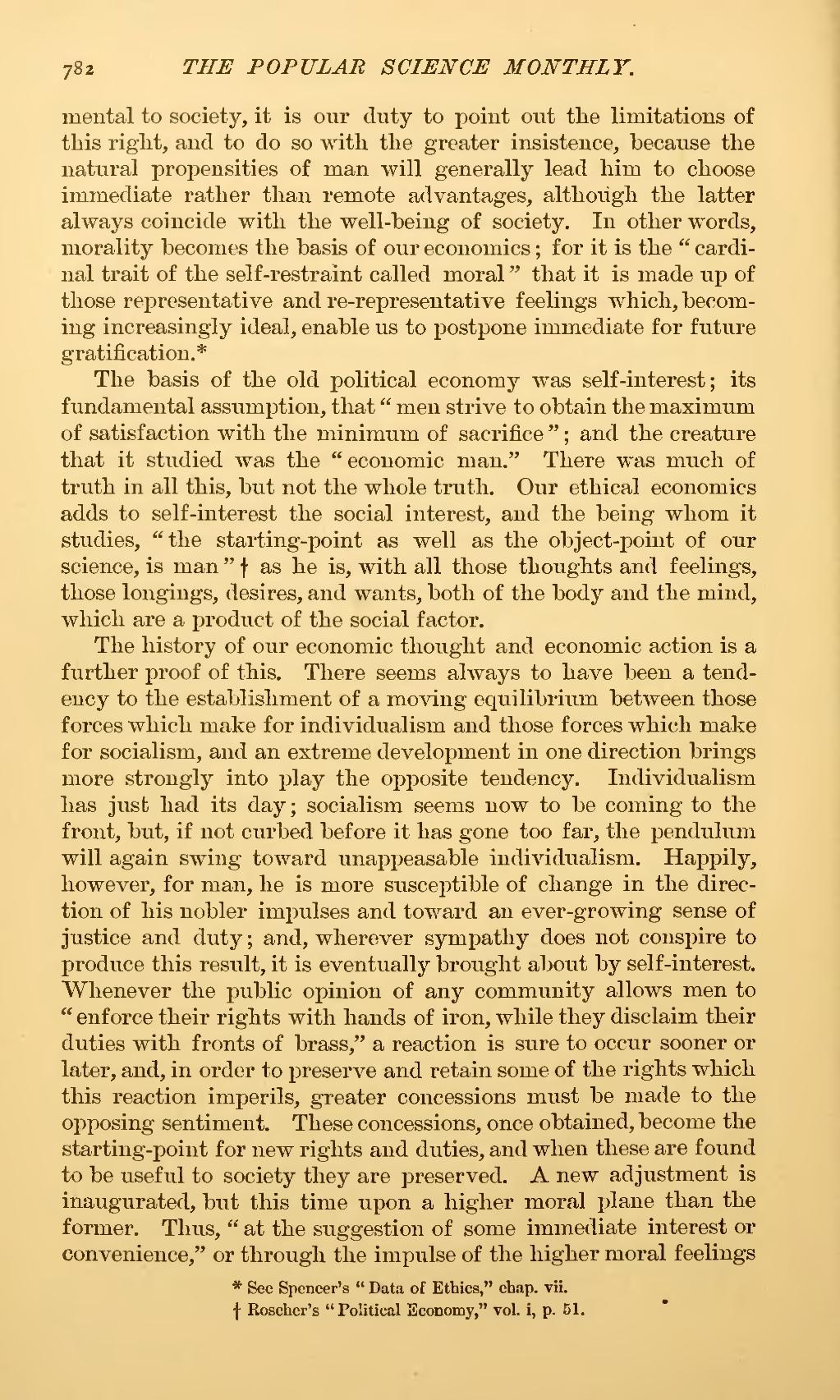mental to society, it is our duty to point out the limitations of this right, and to do so with the greater insistence, because the natural propensities of man will generally lead him to choose immediate rather than remote advantages, although the latter always coincide with the well-being of society. In other words, morality becomes the basis of our economics; for it is the "cardinal trait of the self-restraint called moral" that it is made up of those representative and re-representative feelings which, becoming increasingly ideal, enable us to postpone immediate for future gratification.[1]
The basis of the old political economy was self-interest; its fundamental assumption, that "men strive to obtain the maximum of satisfaction with the minimum of sacrifice"; and the creature that it studied was the "economic man." There was much of truth in all this, but not the whole truth. Our ethical economics adds to self-interest the social interest, and the being whom it studies, "the starting-point as well as the object-point of our science, is man"[2] as he is, with all those thoughts and feelings, those longings, desires, and wants, both of the body and the mind, which are a product of the social factor.
The history of our economic thought and economic action is a further proof of this. There seems always to have been a tendency to the establishment of a moving equilibrium between those forces which make for individualism and those forces which make for socialism, and an extreme development in one direction brings more strongly into play the opposite tendency. Individualism has just had its day; socialism seems now to be coming to the front, but, if not curbed before it has gone too far, the pendulum will again swing toward unappeasable individualism. Happily, however, for man, he is more susceptible of change in the direction of his nobler impulses and toward an ever-growing sense of justice and duty; and, wherever sympathy does not conspire to produce this result, it is eventually brought about by self-interest. Whenever the public opinion of any community allows men to "enforce their rights with hands of iron, while they disclaim their duties with fronts of brass," a reaction is sure to occur sooner or later, and, in order to preserve and retain some of the rights which this reaction imperils, greater concessions must be made to the opposing sentiment. These concessions, once obtained, become the starting-point for new rights and duties, and when these are found to be useful to society they are preserved. A new adjustment is inaugurated, but this time upon a higher moral plane than the former. Thus, "at the suggestion of some immediate interest or convenience," or through the impulse of the higher moral feelings

